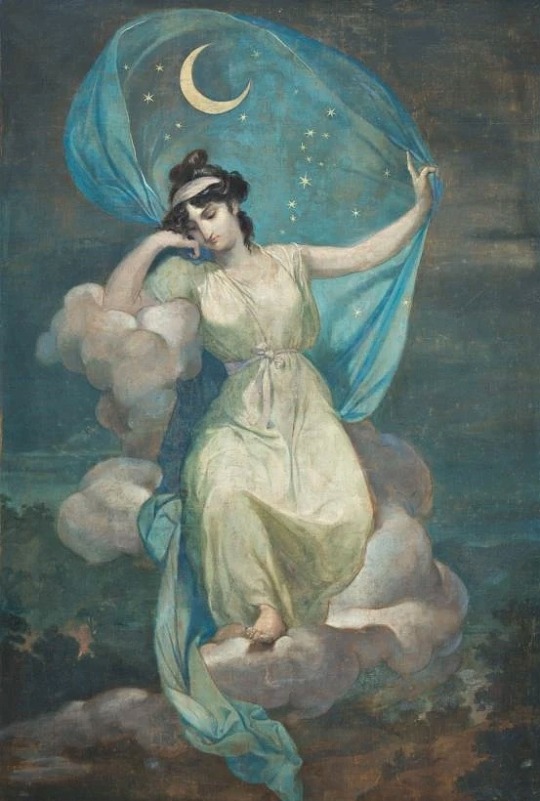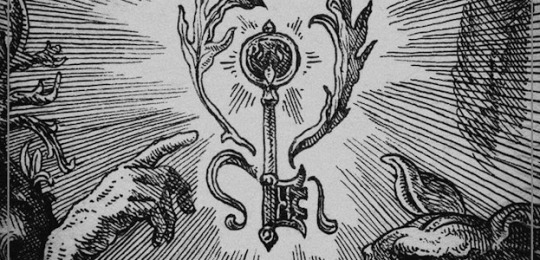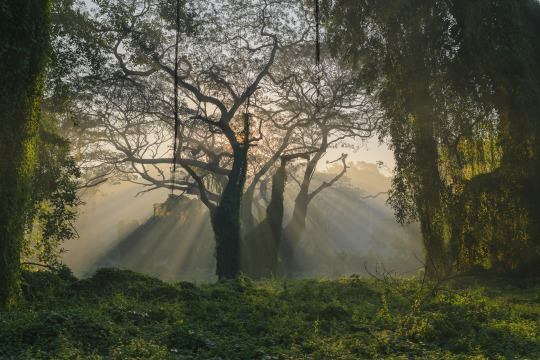Text
My dreams this morning were full of critters: wasps, moths, an adorable little peacock, a large bathroom spider, and a small great horned owl that I cuddled like a baby. Hello, Potnia Theron??
0 notes
Text
We need to be as good at lifting up as we are at calling out
In advocacy/activist space, we’ve gotten really good at noticing and naming oppression. We’ve gotten really good at criticizing the things that people are doing wrong, and demanding change. We’re also good at noticing organizations and people who shouldn’t be supported, and explaining why people shouldn’t support them.
This is important — and it’s not enough. We need to be equally good at noticing and naming things that *are* worth supporting. We need to be equally good at noticing what people are doing well, describing why their approach is good, and finding ways to support it. Calling out isn’t enough. We need to seek out things to lift up.
When we focus exclusively on finding things to call out, we send the implicit message that nothing good anyone is doing is worthy of our attention. But none of the work of building a better world happens by itself. It depends on the people who are putting the effort into doing the work. When we ignore the value of the work people are doing, we both harm those people and the work itself.
The work is hard, exhausting, and vital. It’s also often thankless — because we’re not acknowledging it in the way we need to be. Often, doing activism and advocacy means signing up for a life of being paid less than a living wage (or volunteering your very limited time), having your work ignored, and being noticed by your community only when people are angry at you.
This is particularly common when the work is done by marginalized people. Our culture socializes us to ignore the work that women and other marginalized groups do, except when we find reason to criticize it. This dynamic carries over into activism/advocacy spaces. It’s just as toxic when we do it as when corporations do it.
There’s nothing inevitable about this. We can make it stop. We can pay attention to the work people are doing, and we can show respect to the people doing it. We can describe the worthwhile things people are doing, and talk about why they should be valued. We can seek out ways to support what people are doing, whether that means donating, signal boosting, going out and voting, connecting people to each other, or any number of other things. By getting just as good at support as we are at call outs, we can make the world much better.
1K notes
·
View notes
Text
POLYCENTRIC POLYTHEISM: THE GODS IN COUNTERPOINT

Excerpt from an essay on Patreon.
Religious syncretism has simultaneously fascinated and baffled me ever since I learned of its prominence in the ancient Mediterranean. On one level, it makes sense; after all, different cultures were bound to see their own gods in those of their neighbors. But the more I read and researched, the more it seemed like the names or identities of the gods didn't really matter. I am reminded, for instance, of the goddess Isis in The Golden Ass, when she describes herself as being "worshiped by all the world under different forms, with various rites, and by manifold names." Does it really make a difference, then, whether one prays to Hekate, Artemis, Kybele, Rhea, or Isis? After all, these goddesses were all identified with one another at some point over the course of history.
I might have been stuck on this for many more weeks and months had I not recently learned of a more obscure form of polytheism: polycentric polytheism. Strangely, it took me six years of exploring polytheism and paganism to discover this polytheistic structure, which asserts that all gods are in every god, and that each god is supreme, containing all of the universe within themselves. This essentially allows every god to be placed at the "center" of things. In the Hellenic tradition, for example, Artemis, Hermes, or even Selene can be seen as the "ruler of all" instead of just Zeus, who is generally considered to be the universal sovereign. This structure—all gods in every god—stands in opposition to the more commonly accepted structure of pluriform monotheism, or all gods in one god, i.e. all gods are aspects or emanations of a singular divinity.
Syncretism makes a lot more sense when viewed through a polycentric lens. If all gods are in every god, then it's easier to see the "Isis" in Hekate or the "Hermes" in Anubis. And that is where the concept of counterpoint comes into play.
I'm not an expert on musical theory—I hardly know anything, to be honest—but it seems to me that a lot of music produced today employs counterpoint, weaving together two or more melodies or voices into a harmonic whole. In a polycentric framework, the gods are no different. Each deity is their own voice, their own unique melody, and they combine together to form the musical texture of the universe, so to speak. A single voice in a contrapuntal texture is a whole unit or "individual"; it does not require other voices to support or complete it. However, the inclusion of additional, unique voices enhances the musical texture in captivating ways and makes it more interesting to listen to.
The same, by polycentric standards, applies to the gods. Each god is supreme in their own right, but they're made stronger when they "sing" alongside each other. Their melodies reflect and complement one another while maintaining individuality. The end result? Our complex reality—and by extension, our multifaceted human experience. For comparison, imagine a world in which no other deity existed (or was said to have existed) except one. Our spiritual universe would be rather one-dimensional, would it not? We wouldn't have the colorful, diverse mythologies and many of the powerful archetypes we know and love today. Yes, there are plenty of monotheists out there who believe in a single divinity, but they don't exist in a vacuum; they are surrounded by the stories, signatures, and symbols of countless gods.
When we apply this concept to polytheistic worship, we have two main choices: we can listen to and appreciate the whole harmonic texture the gods produce, or we can focus on a few melodies that stand out to us. In terms of actual practice, most polytheists fall in the latter category, picking out melodies (deities) that appeal to or resonate with them and incorporating them into worship. It's impossible, after all, to venerate each and every god in existence. However, polytheists who subscribe to a polycentric framework can appreciate the whole through the worship of only a few. After all, all gods are in every god. The only thing that changes, it seems, is the manner in which one divinity manifests—or is "activated"—in another. A god like Hermes will likely manifest differently in Hekate than in Aphrodite, for example.
It's this ability to "activate" other gods within themselves that allows every god to reign as supreme. We might be tempted to limit the gods based upon the functions we have ascribed to them (e.g. Aphrodite as the goddess of love or Poseidon as god of the sea), but these functions—along with their associated mythologies and symbols—serve mostly to build the individual identity of the gods. Through a polycentric lens, all gods are capable of performing every function because they are perfect and contain the universe (and all other gods) within them. So one can pray to Ares for love or Hephaistos for a good harvest, and each of those gods will approach those functions in ways that are unique to them.
We modern thinkers might be tempted to dismiss the polycentric structure as pointless. From our perspective, we have firmly delineated the gods and their functions over the last couple thousand years, and those boundaries absolutely should not be crossed. After all, why have a pantheon of two dozen deities or more if they can all essentially perform the same functions? Would it not be simpler to worship one divinity at that point?
Sure, but polycentric polytheism emphasizes individuality, not function. When we reduce the gods to their respective functions, we strip them of their individuality. People deliberately choose to worship Aphrodite, not the abstract function of love. Why? Because Aphrodite is an individual: a unique being with a distinctive worldview. People worship Her to commune with that worldview; it is a melody with which they resonate. The same can be said of any other deity in human history, from the Great Mother Goddess to the Christian God.
The same principle occurs in the human psyche. All human archetypes dwell in each human, and we could, in theory, activate any archetype at any time and for any reason, if we wished—even if we wouldn't ordinarily associate that archetype with our personality or blueprint. A man can activate the Mother archetype, a woman the Emperor archetype, or an adult the Wounded Child archetype. So it is with the gods. Hekate can activate Hermes, Isis, Diana, or even The Morrigan if She wishes, along with every other god in existence. This is an excellent demonstration of the Hermetic Principle of Correspondence at work: as above, so below; as within, so without.
Some melodies move us; others fade into the background. Our tastes may change over time, or we may listen to the same melody for the rest of our lives. Maybe you've experienced the Apollonian melody to its fullest and are in need of a new worldview. Maybe the Hekatean melody is the only melody that will ever appeal to you. That's the beauty of the polycentric model: you can enjoy the sovereignty and individuality of any deity for as long as you need without ever truly "losing" your relationship with them—because all gods dwell in every god.
Music that doesn't employ counterpoint can still be pleasant to listen to. Maybe the listener enjoys the simplicity of a single voice or melody and is overwhelmed or overstimulated by songs that have too much going on in them. In spiritual or religious terms, we'd describe these people as monotheists or perhaps even monolatrists/henotheists, depending on their personal views. Not all polytheists subscribe to a polycentric framework, after all. Some may believe in a supreme deity (e.g. Zeus, Indra, Odin, the Great Goddess, etc.) with all other deities being subservient to them. Or some might be "soft" polytheists, believing the gods to be emanations of a single divinity or powerful, living archetypes that influence and inspire humankind.
There is a certain liberating quality about polycentric polytheism, however. Once we strip away the emphasis on function and hierarchy, we are free to focus purely on the deity's unique voice. Just as we know a person's job doesn't define them as a human being, a deity's function doesn't define them as an individual. Nature favors diversity, and that includes diverse worldviews—from the secular to the spiritual, and from the profane to the profound.
7 notes
·
View notes
Text

Allegory of the Night
French school, 19th Century
3K notes
·
View notes
Text
Praise Artemis 🏹



"All nature is the temple; earth the altar."
~ Alphonse de Lamartine
211 notes
·
View notes
Text
Artemis breathes.
When a creature draws in the first breath of life, Artemis breathes. When a creature pants, huffing and puffing, Artemis breathes. When a creature takes in its cherished final breath, Artemis breathes. When a plant absorbs carbon dioxide to nourish itself, Artemis breathes. When the wild winds blow through the leaves of the trees, Artemis breathes.
Artemis breathes.
348 notes
·
View notes
Text
JULY EVENTS at the SANCTUARY OF THE CROSSROADS

The Sanctuary of the Crossroads is a virtual place of worship for Hekate! Whether you're just curious, starting out, or a seasoned practitioner, you're invited to come along!
Here are our upcoming events for July:
Group Meditation with Hekate (vc guided meditation)
Presentation Night: Practice-based Special Interest (anyone can present on a practice-based interest or topic in vc)
In Conversation with El and Quinton: Priesthood (myself and a friend discuss priesthood and our devotional paths with Hekate, open Q&A!)
Chatting at the Crossroads (casual vc event to talk about Hekate and your practice)
Monthly Divination Event - July (three day offer/request divination event)
We also host Movie Screenings and we'll be putting together a digital time capsule this month to open at the next Kleidous Agoge (October)!
Join the Sanctuary!
16 notes
·
View notes
Text
It occurred to me recently that I have no idea how I conceptualize "the heavens" in my practice, so I'm curious to know how other pagans and polytheists interpret it in theirs. Reblogs are appreciated! 🖤
1 note
·
View note
Text

Edgar Allan Poe, from Tamerlane & Other Poems of E. A. P.; “The Sleeper,”
11K notes
·
View notes
















